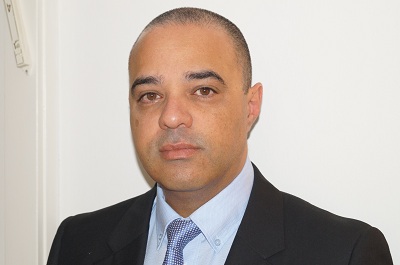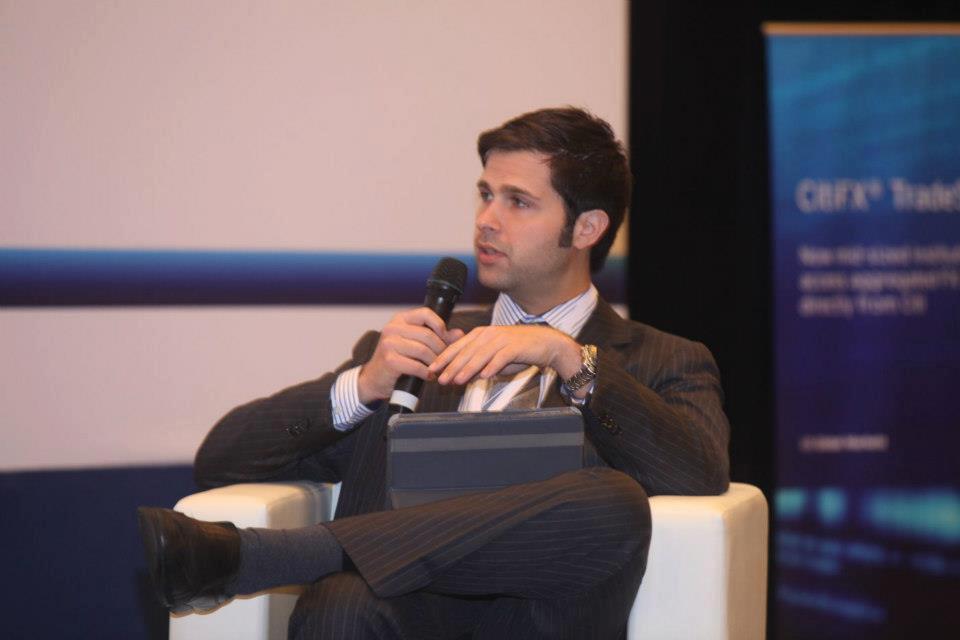As far as new phenomena is concerned, binary options which can be traded online via dedicated platforms by retail customers has enjoyed three years of expansion, with one of the main attractions for entrants being the availability of complete turnkey solutions, as well as the opportunity to play 'house', meaning that an investor can either win or lose, with the losses becoming the property of the broker.

Eyal Rosenblum, CEO
TechFinancials
The nature of it may appear to be similar to that of the gaming industry, or indeed the proliferation of online casinos in which odds are set, and a fixed predicted outcome is selected, which pays out a percentage to customers if it goes in their favor, or is retained by the market maker in the event that a certain currency pair does not reach a specific price at a pre-selected time.
Indeed, despite its similarity to gaming, binary options companies were able to expand their horizons further than marketing to a gaming audience two years ago when CySEC , the Cypriot financial markets regulator, deemed it a financial product and granted binary options firms a CIF license, generating a huge surge in establishment of brands of the main four platform providers in Cyprus, and also a means of integrating binary options platforms within the armory of products offered by retail FX firms.
Two years on, however, times are indeed changing and whilst many brands and white label binary options firms made hay whilst the sun shone, the landscape appears somewhat different these days, with regulatory reforms in many key regions, and with the aptitude of retail traders increasing.
Casino of the West, or Financial Product of the East?
As a result, a turning point is coming into view for the binary options industry, which may result in technology providers which provide the turnkey solutions for binary options brands seeking a complete change in business model, a requirement to scale down, and indeed the question as to whether they will survive in business at all.
For one particular company, the gaming element stands out as a savior, with TRADOLOGIC's CEO, Ilan Tzorya having remained adamantly steadfast in the notion that this is not a financial product, nor does it suit an audience in the financial sector, but instead categorically a gaming product. On this basis, TRADOLOGIC launched an arcade-style product this week, and has made its position clear that gaming is the way forward.
Should this be the case, a client base in nations which do not outlaw gambling or gaming is easily attainable, such as the United Kingdom, Australia, South Africa and New Zealand. These are regions whose populations embrace gambling, are English-spoken, and whose financial regulators take a less than accommodating view of the products.
By categorizing these as gaming products, not only is the audience perhaps more aligned, but the regions in which the products can be sold could make the marketing exercise significantly easier.
With Japan's Financial Services Agency (JFSA) having concluded its regulatory structure for binary options last year, others are less eager to follow. North American clients are only able to operate via one of the two dedicated binary options exchanges, for which none of the four mainstream binary options providers manufacture software solutions, despite the US being a potentially large market, with one of the binary options exchanges, NADEX, reporting recently that its best ever results were achieved during 2013.
Regulatory Inclusion or Isolation Ahead?
Whilst CySEC was the first national financial regulator to consider binary options a financial product, the resultant flocking of binary options brands to its shores as a means of utilizing the MiFID passporting system to accrue a pan-European client base has not been without its drawbacks.
For a great many companies operating in Cyprus, a large proportion of customers are acquired from other regions outside Europe, which has not been met with universal approval from non-European regulators.

Mitch Eaglstein,
Managing Director,
Boston Prime
This has manifested itself in one binary options brand, Banc de Binary being the subject of a lawsuit issued by the US Commodity Futures Trading Commission (CFTC), accusing it of unlawfully soliciting American clients, as well as CySEC itself being pressured by the Japanese FSA into reiterating to its members that each client from outside of Europe must seek approval from the regulator in the country of each client's origin before depositing funds to a CySEC regulated firm.
TechFinancials Continues Financial Sector Model
With regards to the future path which binary options technology firms will follow, Forex Magnates spoke to TechFinancials, to ascertain its position and whether it will also adapt TRADOLOGIC's gaming stance, or scale back its operations accordingly due to market saturation and a potentially uncertain future.
"Actually we at TechFinancials do not believe in taking this to gaming," explained Eyal Rosenblum, CEO and co-founder of TechFinancials.
"On the contrary," he continued, "we are investing a lot of resources to develop additional financial instruments that will suit other type of traders while maintaining the simple experience, as well as tools and enhanced trading applications to improve overall trading experience.
As we see some of our partners growing exponentially while targeting the financial services markets, we feel confident in pushing towards this direction and strengthen our position as the leading software for this market when it comes to financial and professionalism.
We don’t think it is possible to do both professional trading and gambling, and still provide the high-end financial software to brokers."
Opaque
Whilst the vast majority of large retail FX companies produce their monthly operating metrics and financial results, there are only two binary options entities in the entire industry which do this, namely the two US-based exchanges, Cantor Exchange and NADEX, as a result of the US law that exchanges must publish detailed transaction information.
Aside from these two exchanges, not one of the platform providers, nor their associated brands provide any financial results, trading volumes or operating metrics.
This lack of transparency runs counter to that of the FX industry, and indeed not only provides regulators with reasons to be wary, but also ensures that the knowledge of the methodology by which prices are arrived at remains the preserve of the technology providers and market makers alone, another similarity to the business model used by gaming firms.
Indeed Japan's FSA stipulates that five prices must be displayed on any binary options platform at any time, but does not stipulate that a provider must justify how these prices were calculated, exactly the reason why OTC binary options are illegal in the United States, and why they attract read-across clients of gaming firms in other regions.
With regard to compatibility with retail FX clients, Forex Magnates spoke to a US-based retail FX firm, whose CEO explained that whilst there is a distinction between binary options traders in America compared to the rest of the world, "they are all addicts."
"Binary options are just another way for a client to speculate on future movements of a currency. I traded binary options when I was a prop trader at Bank of America in London. There they have their place , but we were professional users. The retail market is pure gambling."
Mitch Eaglstein, Managing Director at Boston Prime, today conveyed his view to Forex Magnates that, "It does seem that in most cases binary options is more of a gaming product than anything else."
"It would most likely require significant regulation for that perception to change. That being said, certain FX firms may view it as an additional revenue source and FX firms are well positioned to benefit from the overall increase in demand for binary options," he continued.
With regard to adaptation as a result of regulatory attitude to the product, Mr. Eaglstein explained that, "Increased regulation in the binary space though, could make binary options less attractive from a company point of view and reduce the chances of more firms adopting it. Either way, binary options has become popular in recent years."
Mr. Eaglstein concluded by advocating a return of prediction market sites relating to all events, rather than just currencies. "Most FX firms will probably wait to see how the market develops before entering the space. Personally, I would like to see more binary prediction markets such as the former InTrade make a resurgence as I felt they had societal value in understanding the odds of future events such as elections, wars and other things," is his perspective.
TRADOLOGIC appears to be calling a spade a spade, and it will no doubt be interesting as to the commercial nature of the different market participants which will take it up.











